Blog Posts Tagged CFD Module
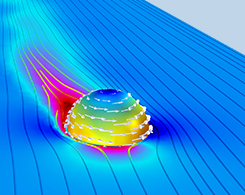
Terminal Velocity, Drag Coefficients, and FIFA World Cup™ Predictions
Is it possible to predict the winners of the FIFA World Cup™? We forgo consulting a psychic and instead analyze the terminal velocity and drag coefficients of different balls with CFD simulation.
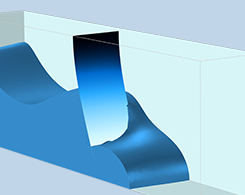
Modeling Free Surfaces in COMSOL Multiphysics® with Moving Mesh
You can model free liquid surfaces that do not undergo topology changes using moving mesh functionality in the COMSOL® software. Here’s a thorough guide on how to do so.
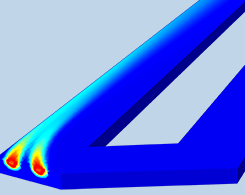
Analyzing Multiphase Flow in an Airlift Loop Reactor Benchmark Model
This blog post features a benchmark model of an airlift loop reactor that validates the use of CFD simulation for analyzing multiphase flow.

Two Methods for Modeling Free Surfaces in COMSOL Multiphysics®
We take you through 2 methods for modeling free surfaces in the COMSOL® software: the level set and phase field methods. Learn how to use each method and their benefits.

How to Solve a Classic CFD Benchmark: The Lid-Driven Cavity Problem
We demonstrate how to solve a classic benchmark problem in the field of computational fluid dynamics, the lid-driven cavity problem, using the COMSOL® software.
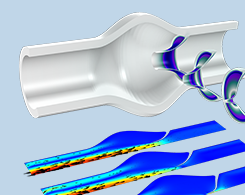
Modeling Fluid-Structure Interaction in a Heart Valve
The average human heart beats 100,000 times per day, but what if the person has cardiac issues? Modeling fluid-structure interaction in a heart valve can help researchers develop new treatments.
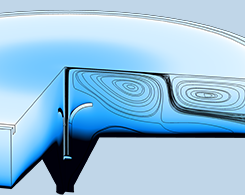
Analyzing Wastewater Contaminant Removal in a Secondary Clarifier
1 potential way to ensure sustainable water access is by developing safe and efficient wastewater clarifiers. Engineers can use fluid flow simulation to develop optimized clarifier systems.
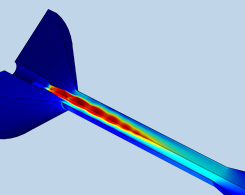
Analyzing a Supersonic Ejector with CFD Simulation
From food refrigeration in a local market to debris removal in the outer corners of space, ejectors have a wide range of uses. You can use the CFD Module to analyze a supersonic ejector design.
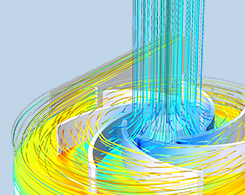
Using the Algebraic Multigrid (AMG) Method for Large CFD Simulations
There’s an ideal method for solving large CFD simulations that involve complex geometries. It’s called the algebraic multigrid (AMG) method, and you can learn all about it here.
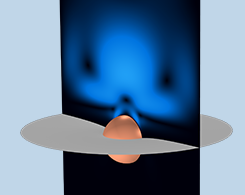
Modeling a Sphere Falling on a Water Surface
Get the theory behind a quintessential CFD problem, the oscillating motion of a buoyant sphere, as well as step-by-step instructions for modeling it in COMSOL Multiphysics®.
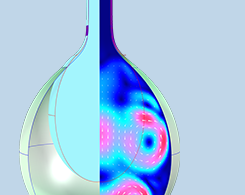
How to Model Fluid-Structure Interaction in a Water Balloon
They’re not just for playing games in the backyard: Water balloons are also an example of fluid–structure interaction in a nonlinear elastic material. Learn how to model this effect…
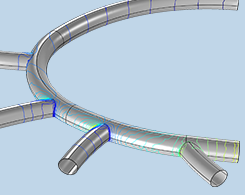
Analyzing Magnetic Flowmeters for Blood Flow Measurement
Biomedical researchers used multiphysics modeling in order to understand how blood vessel movement influences the sensitivity of their flow meter designs. Get the full story here.

Optimizing a Microlens Design for Optogenetics Applications
Optogenetics is a field of study that could shed light on neurology and memory. To design an optimized microlens for optogenetics uses, these researchers turned to multiphysics simulation.
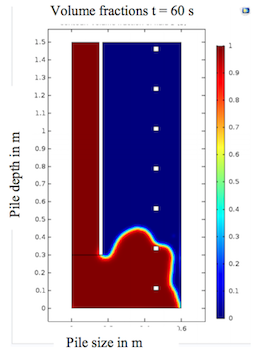
Analyzing Concrete Flow in Drilled Shafts with CFD Simulation
Researchers from the University of Florida used CFD simulation to analyze concrete flow in drilled shaft designs in order to optimize these deep foundation elements.
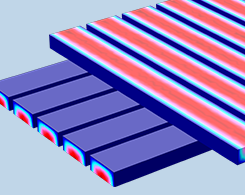
How to Save Computational Time with a One-Way Coupling Approach
Simulating heat transfer in fluids with forced convection can be very computationally expensive. Did you know that you can save a lot of time and resources with a one-way coupling approach?
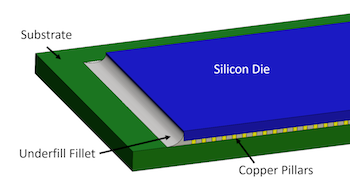
Simulating the Thermocompression Bonding of an Underfill Adhesive
Underfill adhesives are often used in microelectronics to hold different components together. Simulate the thermocompression bonding process of such an adhesive to ensure its effectiveness.
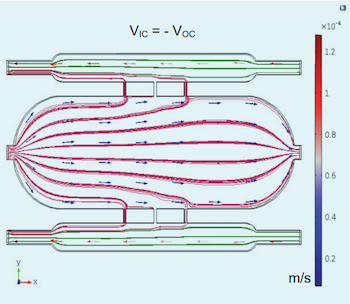
Simulating Cancer Cell Migration in Microgravity with COMSOL®
Researchers used multiphysics simulation to determine how microgravity effects the migration of metastatic cancer cells. Their results could have new implications for therapy and treatments.
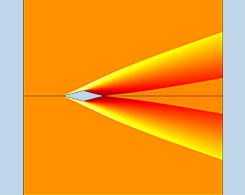
How to Model Supersonic Flows in COMSOL Multiphysics®
Learn about the different types of sonic flow and how to calculate the angle and Mach number of a shock wave in order to model the supersonic flow around an object, such as a diamond airfoil.
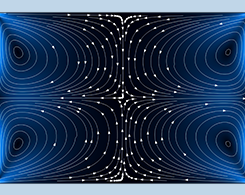
Efficiently Analyze Acoustic Streaming with Multiphysics Modeling
Acoustic streaming is when sound waves are used to generate steady fluid motion. You can use multiphysics modeling for an efficiency way to analyze this phenomenon.
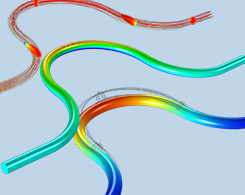
Modeling Aeroacoustics with the Linearized Navier-Stokes Equations
Get a comprehensive introduction to aeroacoustics modeling, as well as the linearized Navier–Stokes equations and how to implement them in COMSOL Multiphysics®.
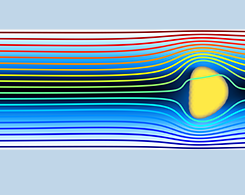
Investigating the Behavior of an Ancient Organism with CFD Simulation
Researchers used CFD simulation to study the behavior of an ancient organism called the Parvancorina in order to learn more about the ecosystem of the Ediacaran period, 635–541 million years ago.
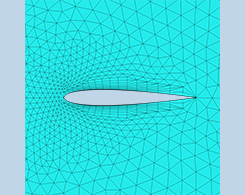
Which Turbulence Model Should I Choose for My CFD Application?
Modeling turbulence in the COMSOL® software? Find out which turbulence model you should use, depending on your CFD modeling scenario.
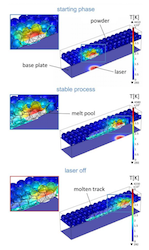
Analyzing Laser Beam-Matter Interaction in Selective Laser Melting
Selective laser melting is a common and important process in many types of manufacturing. You can model the interaction between the laser beam and matter for a closer look at this process.

Why Should I Use Automatic Wall Treatment for My CFD Modeling?
The automatic wall treatment functionality enables you to use low Reynolds number models for a wider range of CFD problems, but there are some factors to consider before implementing the feature.
